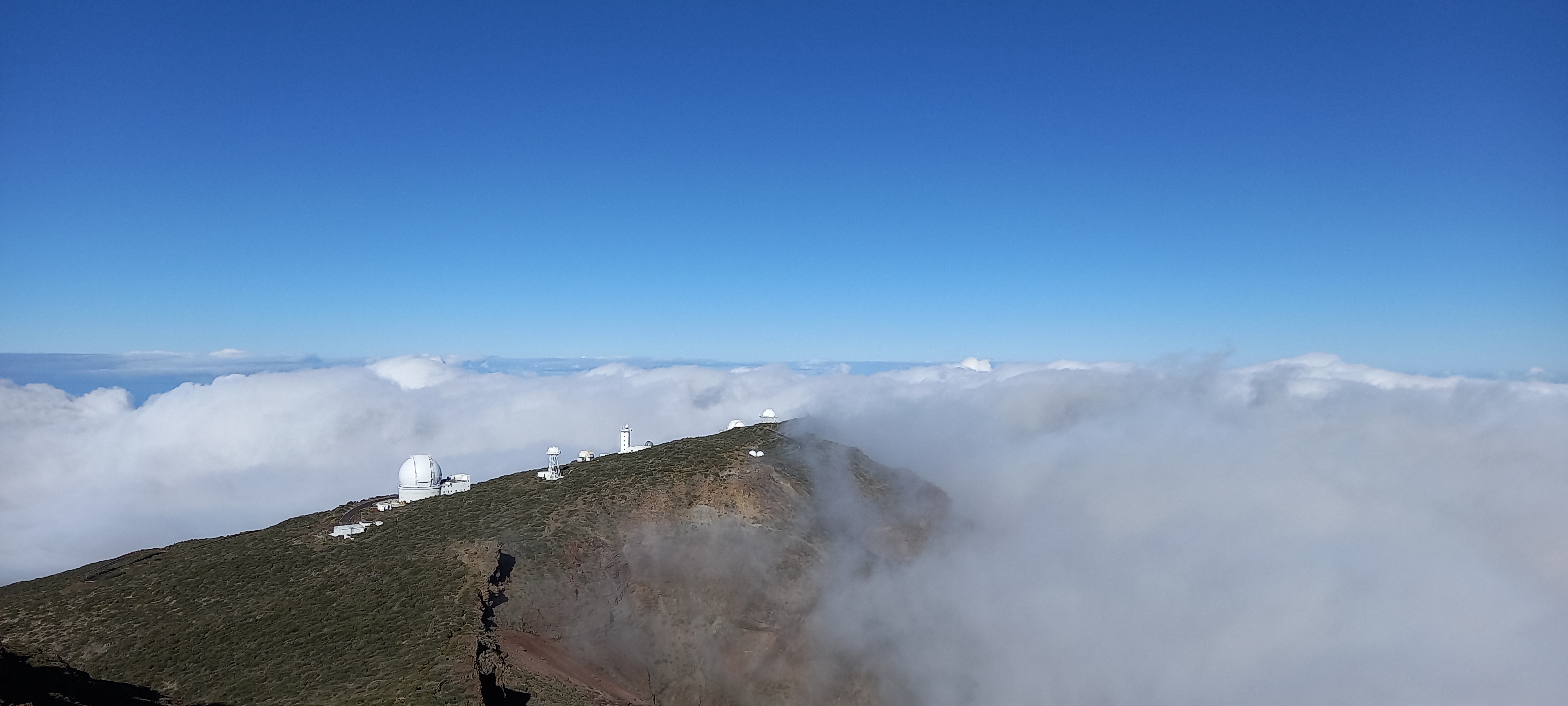The ING Support and Research Studentship Programme
The recruitment process for the 2025/26 studentship programme is now closed.
The 2026/27 programme should be announced by February 2026.
The
Isaac Newton Group of Telescopes (ING) invites students doing astrophysics-related PhD and MSc courses to submit their applications for the 2025/26 ING Support and Research Studentship programme.
Successful candidates will spend a year on La Palma and learn to observe with the
WEAVE multi-object and multi-IFU spectrograph mounted on the 4.2-m
William Herschel Telescope (WHT).
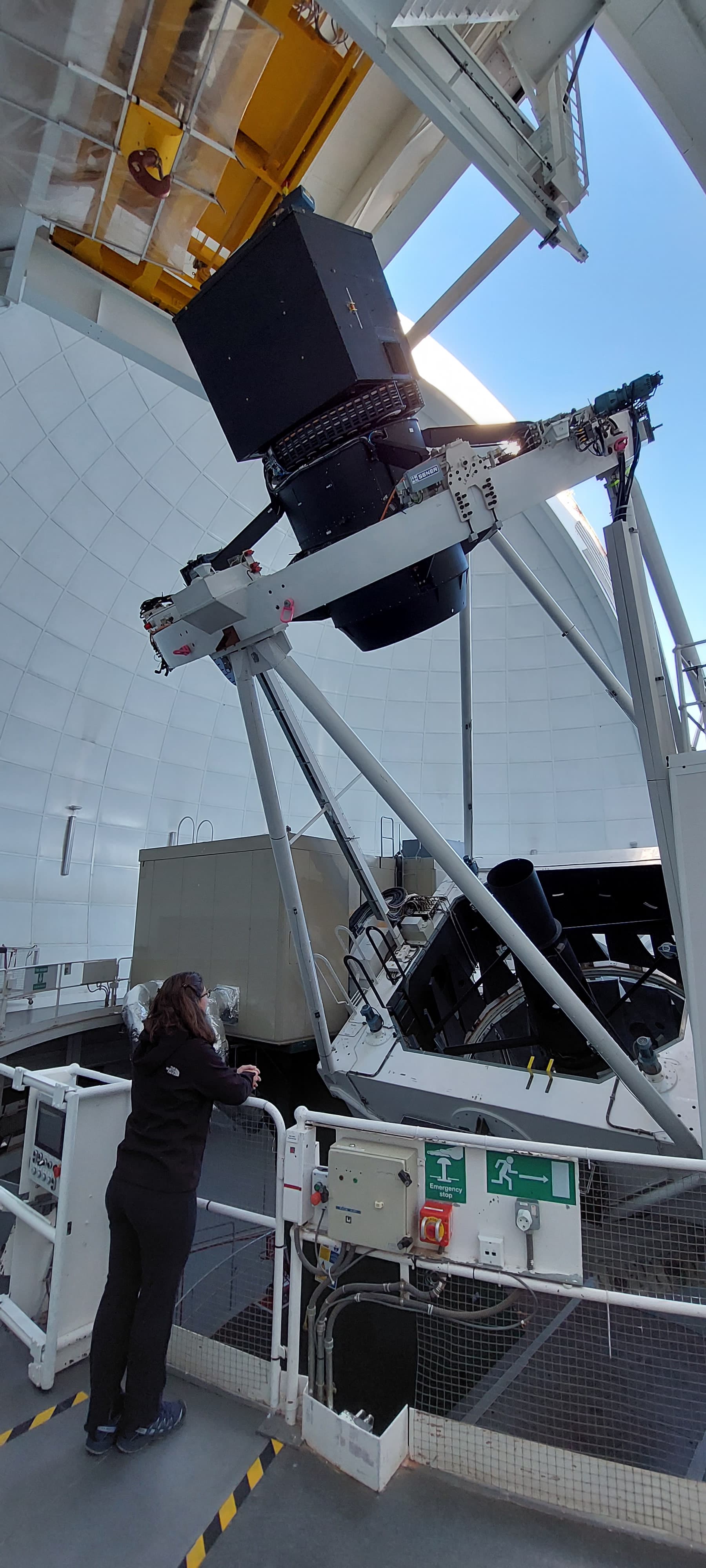
The WHT with the box of the WEAVE Fibre Positioner visible at the top end (with an ING student in the foreground).
Overview
The WHT is operated by the ING at the
Observatorio
del Roque de los Muchachos on the island of La Palma (Canary Islands, Spain).
In June 2022, the WHT was fitted with WEAVE,
a powerful multi-object and multi-IFU spectrograph.
Scientific observations started in October 2023, and are expected to accelerate in 2025.
WEAVE is transforming the scientific productivity of the WHT
with a combination of Open Time observations and Surveys, which are carried out in queue mode by ING observers.
The 2025/26 ING Support and Research Studentship programme offers astronomy
and astrophysics PhD and MSc students a unique opportunity to spend one year at
ING learning to become proficient observers in the highly-demanding field of wide-field multi-object spectroscopy.
After a training period, they will be carrying out observations for the WEAVE surveys and open-time programmes,
and, if they are interested, participate in ING projects related to instrumental, optical,
or software development, improvement and/or characterisation of WEAVE (approximately 25% of the time, in total). The remaining time is dedicated to their PhD or MSc thesis activities or other research interests.
Students might have the opportunity to seek involvement with one of the WEAVE science surveys or open-time projects if they wish, and thus be involved with WEAVE science.
Four positions are offered in the 2025/26 call. Candidates interested in any field of observational astronomy and/or astronomical instrumentation are welcome, especially those fields related to any of the WEAVE surveys. During their stay at the ING, the selected candidates can apply, for WEAVE Open Time, to the three Time Allocation Committees of the ING partner countries: UK, Spain and The Netherlands.
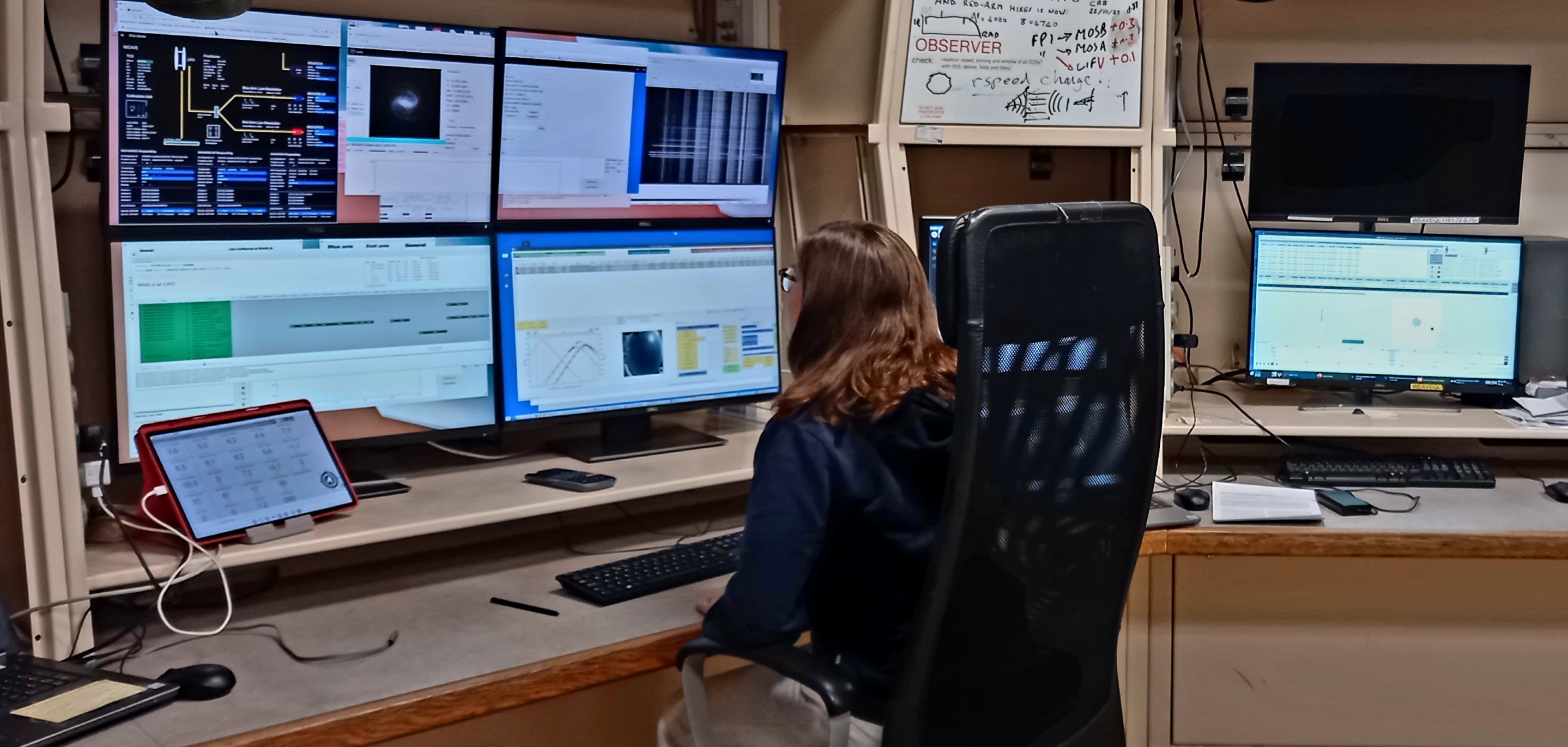
WHT control room -- WEAVE Observing System.
Selected candidates will be employed by ING under a training contract for the acquisition of professional experience, and will receive a monthly salary to cover their living expenses on La Palma.
The ING headquarters are located
in Santa Cruz de La Palma and have modern computing, data-reduction, and
communication facilities. Access to a library, meeting rooms, etc. is
also provided. Joint seminars with other institutions on scientific or
technical topics, and also visits to other ORM telescopes, will be organised.
The ING offers accommodation in ING-owned flats, free to the students. The flats
are within walking distance of ING's sea-level
headquarters.
The astronomical family on La Palma is large, so professional and
social contacts are frequent.
Each year, the ING students can volunteer to participate in outreach activities organised at the ING
sea level office and Roque de los Muchachos Observatory (ORM), which in the past have included astro-photography
and school visits.
WEAVE in a nutshell, produced by Judith Santos and Freya Barwell, ING students 2022/23
Requirements
The candidate must meet the following requirements:
- EU or UK citizenship, or possession of an EU or UK national
residence permit.
For UK citizens, the post-Brexit rules are now well defined, but obtaining the necessary visas
involves some paperwork and expense. ING admin can help with
the procedural steps, and ING will cover the costs of obtaining the visas, up to a certain limit.
- A Bachelor or MSc degree in Astronomy or Physics, with graduation occurring no more than three years prior to the starting date (September 2025).
- No previous employment under a contract related to Astronomy with a Spanish institution, including standard employment contracts or training agreements for professional experience acquisition.
- A strong interest in observational astrophysics and/or astronomical instrumentation.
- A good working knowledge of English (knowledge of Spanish is an advantage).
- Ability and willingness to carry out tasks during day or night, occasionally also on weekends or
public holidays, at an altitude of 2400 metres above sea level, and to take up residence
on La Palma for the duration of the studentship.
- A medical examination (usually in the home country, to be reimbursed by the ING) to ensure the student's fitness for
duty, especially at the altitude of the observatory on La Palma.
Other (non mandatory) criteria
Candidates meeting any of the following (non-mandatory) criteria are particularly welcome:
- Enrolment in a MSc or PhD programme in Astronomy.
- Citizenship of (or residence in) one of the three ING partner countries: Spain, UK or
the Netherlands.
- Possession of a valid driving licence, and ability to drive a car, by the time of taking up the position on La Palma.
- Connection to any WEAVE projects and/or research interests similar to those of the WEAVE surveys.
- A working knowledge of the Linux/UNIX operating systems and astronomical data-reduction software.
- Experience of observing and data reduction.
Public-outreach photographs taken by the 2018/19 students.

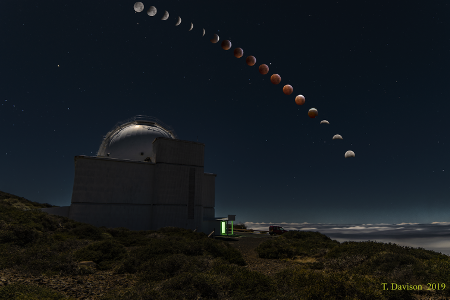
Terms of training
Following their selection for the programme, the selected candidates sign a training contract with ING for the acquisition of professional experience. The following summary is for information only and does not constitute a contractual obligation:
- The selected candidates will be employed by ING under a training contract for the acquisition of professional experience, equivalent to a Staff Observer position at 25% workload.
- The duration of the training contract is approximately 50 weeks, preferably starting at the end of September.
- Students will be required to dedicate 25% of their time to ING duties, mainly through carrying out WEAVE science observations at the WHT, during 2–3 nights per month. The remaining time can be devoted to their MSc or PhD thesis or other interests.
- Financial support for travelling to and from La Palma plus one round trip for mid-term
vacation, and accommodation for the duration of the internships are provided by the ING.
- A vacation period of 23 days is assumed for the students during their 1-year stay at the ING.
- Transport, accommodation and subsistence during observing nights and day-time visits to site are provided by ING.
- Office space and appropriate computer facilities are provided at ING headquarters in Santa Cruz de
La Palma.
- Selected candidates, under the guidance of the Studentship Programme Manager and the Head of Astronomy,
will be trained in WEAVE observations.
If they wish, they can get involved in WHT and WEAVE technical and quality-control activities.
Other activities during the ING studentship program in La Palma
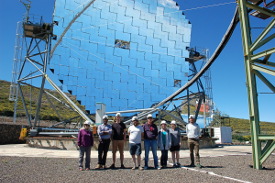
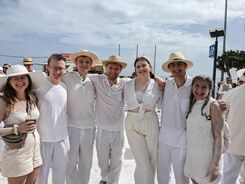
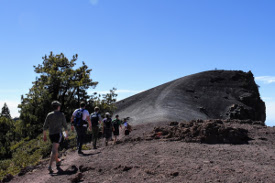
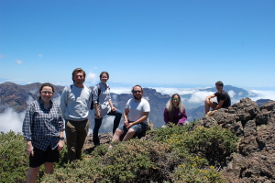

How to apply
Applicants should fill in an application form and also provide a CV, plus the names of two referees willing to provide letters of recommendations. The ING may subsequently request references for short-listed candidates.
Applications should be submitted, NO LATER THAN SUNDAY 16th of MARCH 2025. Any inquiries can be directed to
studentmanager@ing.iac.es
